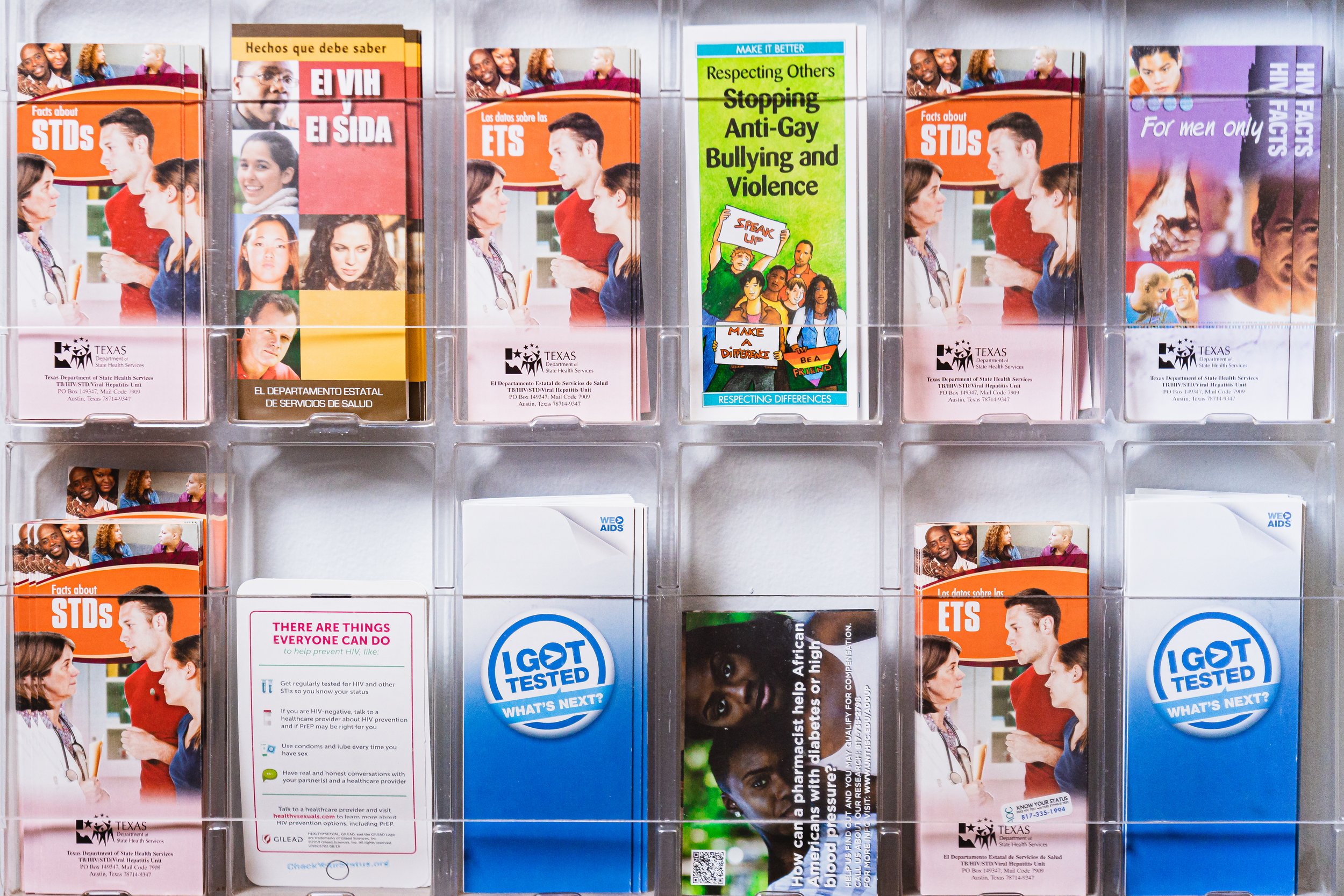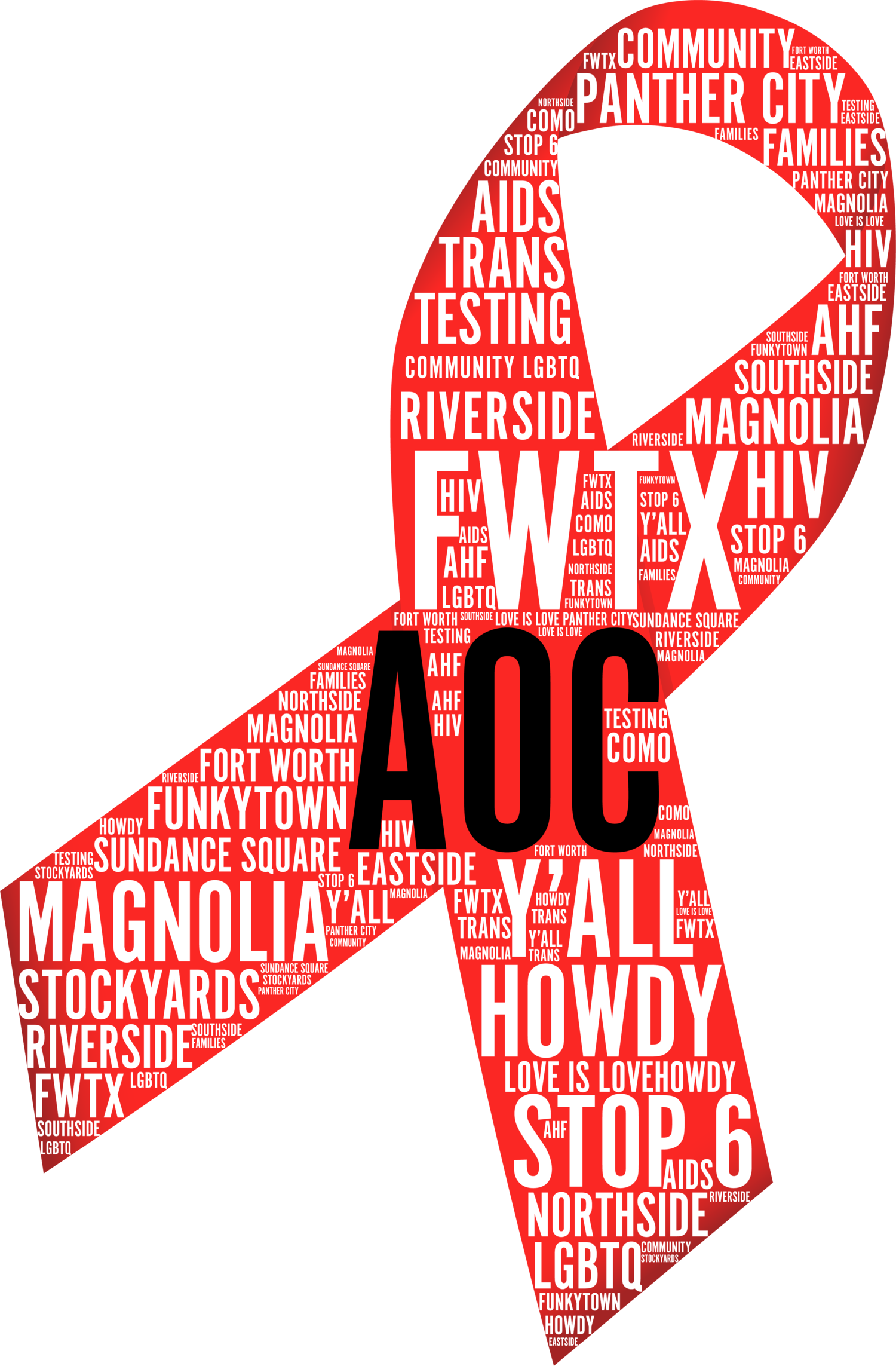
FAQ
WHAT IS HIV?
HIV is the abbreviation for Human Immunodeficiency Virus. This viral infection attacks and weakens your immune system. Over time, some times many years, HIV can develop into AIDS.
For more information about HIV, please visit: hivinfo.nih.gov/resources
Or you can call Centers for Disease Control and Prevention`s National Hotline:
English: 800-342-AIDS (2437) - 24 hours
Spanish: 800-344-7432 (8 a.m. to 2 p.m., EST)
TDD Service for hearing impaired: 800-243-7889 (10 a.m. - 10 p.m., EST, Monday - Friday)
WHAT IS AIDS?
HIV is the abbreviation for Human Immunodeficiency Virus. This viral infection attacks and weakens your immune system. Over time, some times many years, HIV can develop into AIDS. For more information about HIV, please visit: hivinfo.nih.gov/resources Or you can call Centers for Disease Control and Prevention`s National Hotline:
English: 800-342-AIDS (2437) - 24 hours
Spanish: 800-344-7432 (8 a.m. to 2 p.m., EST)
TDD Service for hearing impaired: 800-243-7889 (10 a.m. - 10 p.m., EST, Monday - Friday)
WHERE CAN I GET MORE INFO ON HIV/AIDS?
Any AIDS agency, such as AIDS Outreach Center, public health department or Planned Parenthood should be able to give you information about HIV/AIDS. You can also get information from the Department of State Health Services (DSHS) and the Centers for Disease Control (CDC). You can reach AIDS Outreach Center by email at info@aoc.org. Your local public library will also be a source of basic information as will your family physician.
For more information, please visit:
HOW DO YOU GET INFECTED WITH HIV?
You can get infected with HIV through sharing needles or works (drugs, body piercing and tattoos) with someone who is infected and/or having unprotected (no condom) sex (anal, vaginal or oral) with someone who is infected. A new mom who is infected can infect her baby through breast-feeding as well.
There are only four body fluids that transmit HIV from one person to another: blood, seminal fluid, vaginal fluid and breast milk. In order for someone to become infected, one of these body fluids must leave the body of the infected person and get inside the body of the uninfected person. Just getting the body fluid on your skin is not sufficient for transmitting HIV, UNLESS you have a cut or other opening in your skin that will allow HIV to enter your body.
Saliva (spit) does not transmit HIV, but it is possible to become infected through unprotected oral sex.
You cannot get HIV through the air or from casual contact. HIV is not spread by:
Living, working or going to school with someone with HIV infection
Shaking hands, hugging or kissing
Sneezing or coughing
Sharing food, plates, cups or forks
Toilets, tubs or swimming pools
Mosquitoes or other insects
HOW CAN I TELL IF SOMEONE IS INFECTED WITH HIV?
The only way to tell if someone is infected is for that person to get tested. There are no defining symptoms of HIV infection. You can NOT tell if someone is infected by the way they look, how they feel, where they work, where they live, where they go to school, where they shop, how much money they make, where they go to church, etc.
WHAT ARE THE SYMPTOMS OF HIV?
There are no defining symptoms of HIV infection. However, symptoms resembling the flu may be the first sign of HIV infection. Many infected persons do not seek medical help for these symptoms. The HIV virus can still be spread, even if the person doesn`t know that they are infected. Sometimes, it can take as many as 10 years or more before advanced symptoms develop.
If you are involved in high-risk behaviors, do yourself and your partner(s) a favor and get tested.
IS IT SAFE TO LIVE WITH SOMEONE WITH HIV?
Yes. HIV is not a casual contact infection. That is, you can not get it by living in the same house with someone who has HIV. HIV is not passed through the air or on clothing, dishes, or furniture. You can not get HIV by sharing a bathroom or clothes. In most cases, normal household cleaning, clothes washing and dishwashing will keep everyone healthy. It is safe for children to live in the same house as well. You may want to take some precautions when cleaning up after a body fluid spill of someone who has HIV: wear latex gloves, keep children and others away from the area until it is cleaned, use a mild bleach solution.
WHAT HAPPENS IF I GET HIV?
It is important that you see a doctor who works with HIV patients as soon as you can after you find out you have HIV. The doctor will do some blood tests to determine how much HIV is in your system and how strong your immune system is. The doctor may or may not prescribe medications to slow the progress of HIV at this time. There are many factors that will have to be considered. You will need to take care of yourself and follow up with your doctor as recommended to maintain your health for the longest period of time. Many people live with HIV infection for a long time without much difficulty.
Also, there are many agencies, like AIDS Outreach Center, that can help you by providing support services. You may want to find one close to you and connect with them for non-medical support.
WHAT IF MY PARTNER IS HIV POSITIVE?
If your partner has HIV it is very important that both of you take steps to protect yourselves. Use latex condoms/dams every time you have any kind of sexual contact. Do not share needles or works or other sharp objects that may allow body fluids and HIV to transmit from one person to the other. Your partner needs to protect him/herself from getting any other infections including other STDs. It is possible to be re-infected with HIV because there are different strains of HIV. Even if both of you are positive, you need to protect yourselves.
ISN'T HIV/AIDS A "GAY" DISEASE?
No. Anyone can get infected with HIV if they are participating in activities that put them at risk for getting infected. In fact, in 2003, over 34 percent of people diagnosed with HIV were heterosexuals. (2003 HIV/AIDS Surveillance Report, Department of Health and Human Services, Public Health Service, Centers for Disease Control and Prevention.)
High-risk behaviors include sharing needles for drugs, vitamins, body piercing, or tattoos; having unprotected sex (anal, vaginal, oral) with someone who has HIV; babies can get infected through the birth process or through breast-feeding.
If you are involved in high-risk behaviors, do yourself and your partner(s) a favor and get tested.
HIV does not discriminate by age, gender, race, ethnicity, religion, sexual orientation, social status, or anything else. It`s not who you are that can lead to infection; it`s what you do.
WHAT IS A CLINICAL TRIAL?
Clinical trials are the human testing phase of medications. In order for medications to get to this stage of testing, they have passed the laboratory and animal testing phases and show possibilities of being able to help people. Most clinical trials include free doctor visits, lab work and medications. Different clinical trials have different criteria that have to be met for participation in the trial.
HOW CAN I KEEP FROM GETTING INFECTED?
Do not share needles and syringes to shoot drugs or for anything else. Use a latex condom every time you have sex unless you are sure your partner is not infected. When used correctly, condoms can help prevent HIV and other sexually transmitted diseases. Stay with one partner who has sex only with you. Use condoms unless you are sure your partner is not infected with HIV.

